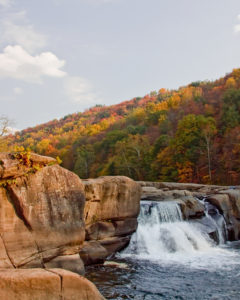We have much more to do and your continued support is needed now more than ever.
Congressional Review Act Threatens To Undo Key Environmental Protections
Wildlife and Public Health at-Risk

Members of Congress are currently devoting a significant amount of time during their first 100 days in office to use the Congressional Review Act to overturn finalized rules and regulations put in place during the last administration. In particular, environmental regulations from the last six months of the Obama Administration are in the crosshairs. Although the Congressional Review Act was originally created as a simple oversight tool, lawmakers are now using the Congressional Review Act to undo major regulations that could seriously jeopardize both wildlife habitats and public health.
Under the CRA, lawmakers can review and reject any regulations have been enacted in the past 60 legislative days as long as they can count on a presidential signature — meaning that dozens of regulations passed during this period could be effectively undone overnight. Reversing two of these regulations in particular would be devastating: the Department of the Interior’s Stream Protection Rule and the Bureau of Land Management’s new Resource Management Planning rule.
The Stream Protection Rule is an update to existing regulations on surface mining that are decades out of date. It would ensure that surface coal mining companies that use “mountaintop removal” mining to access the coal deposits do not dump the debris from their mining operations into the neighboring valleys and pollute the waterways downstream. The mountaintop removal also creates massive long-term costs for the local communities because of the increase in water pollution in the surrounding area. This is a massive problem in Appalachia and according to some estimates, this form of coal mining has already affected 2,000 miles of streams and wildlife habitat as well as countless fish and wildlife.

One key benefit of the Stream Protection Rule is that it introduced a critical aspect for wildlife protection — a 2016 biological opinion that supersedes the previous opinion from 1996. This simply means that the new opinion provides clearer protection for both regulators and industries that is not only efficient, but is compliant with the Endangered Species Act. Without the rule, no biological opinion will be in place, creating an inefficient and unclear regulatory process for industry, regulators and wildlife.
“This rule is the result of years of outreach and input from all stakeholders who acknowledge that after a few decades, we have learned a great deal about science and more efficient natural resource extraction and reclamation methods,” noted Brandi Colander, Associate Vice President of Natural Resources and Energy at National Wildlife Federation. “Moreover, the people of coal country deserve to have states empowered with regulatory certainty to implement these rules with confidence that their water is safe to drink and land will be left behind for future generations to enjoy. Not allowing this rule to see the light of day is a waste of government resources, stakeholder engagement and an insult to people it would serve.”
Compounding this problem is the recent trend of coal mining companies declaring bankruptcy. Before the Stream Protection Rule was put in place, companies could lease the land for mountaintop removal mining as long as they committed to pay for reclamation efforts on the back end to repair the landscape so it can recover as an active wildlife habitat. As natural gas extraction becomes cheaper, more and more coal companies are declaring bankruptcy — thereby absolving themselves of these costs and responsibilities and leaving the landscape blighted by abandoned mining sites. If Congress successfully reverses course on the Stream Protection Rule, it would put 6,000 miles of streams and 52,000 acres of forest at risk.
The BLM rule’s was primarily focused on mitigating methane pollution on public lands. Currently, valuable natural gas is being vented into the air by oil and gas facilities which threatens local air quality while accelerating climate change that endangers wildlife as well. According to the Environmental Defense Fund, these companies have wasted $1.5 billion worth of natural gas since 2013 and this amount is increasing by over $1 million per day. Since methane is the primary component of natural gas and is a potent climate pollutant, repealing this rule not only wastes valuable energy resources but also actively threatens the integrity of wildlife habitats across the U.S.

Since lawmakers only have a 60-day legislative window to reverse enacted regulations, Republicans in both chambers of Congress are racing to overturn what they believe are overreaching regulations that are bad for the economy. But this fails to account for how much money conservation and environmental protection can generate through outdoor recreation. Consumer spending on outdoor recreation is a massive economic driver in communities across America, at $646 billion and 6.1 million direct jobs each year.
As lawmakers rush to roll back environmental regulations with the CRA, they need to fully consider the scope of their actions. Overturning critical environmental protections like the Stream Protection Rule and the Resource Management Planning rule is a shortsighted solution that helps the bottom line of fossil fuel companies for a few fiscal quarters at the expense of polluting America’s clean air, water, and wildlife habitats for generations to come.
Tell your members of Congress to make wildlife protection a national priority.





















